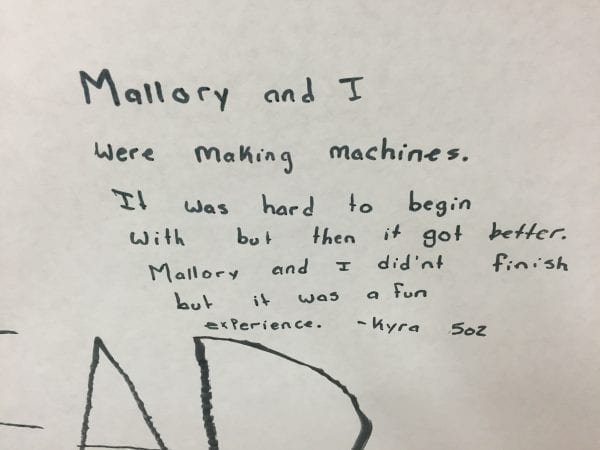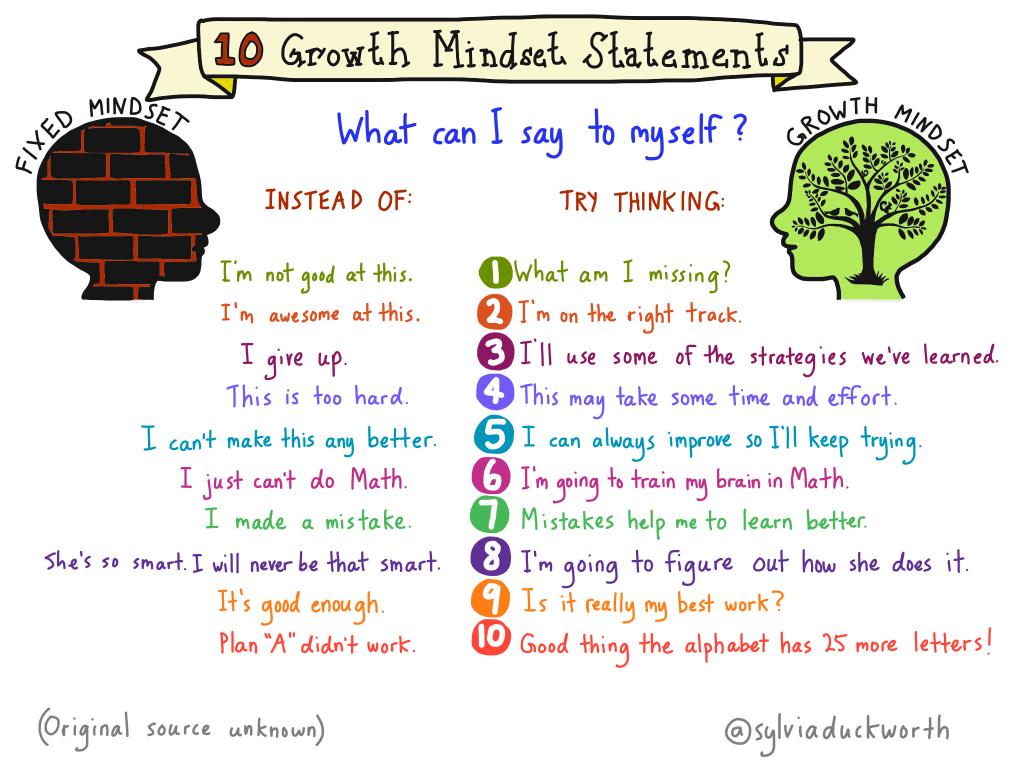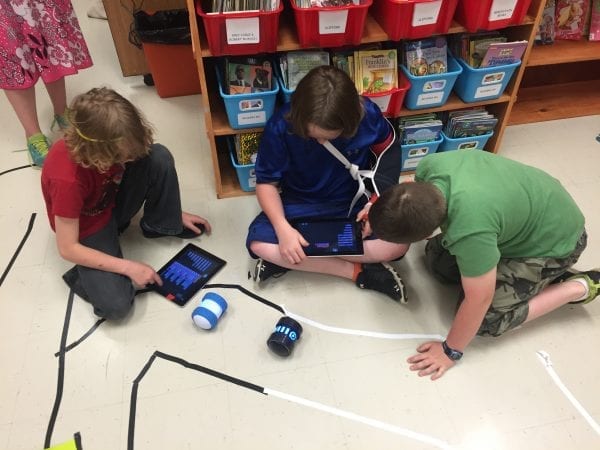
If you believe, “It’s hard for me to learn new things,” “I’m not good with science,” “I’m not a natural dancer,” “I’m not creative,” “I’m a pessimist,” you’re probably living with a fixed mindset. Such a mindset locks your abilities in place, boxing your learning within the constrains of what you think you know and are good at, and that’s it! How can you free yourself from the shackles of these perceived limitations? Is it possible to grow your mindset? Can I as an educator instil an open or growth mindset into my children and students? Let’s explore how the power of words can lead teachers and students alike to becoming life long learners.
In a fixed mindset, students believe their basic abilities, their intelligence, their talents, are just fixed traits. They have a certain amount and that’s that, and then their goal becomes to look smart all the time and never look dumb. In a growth mindset, students understand that their talents and abilities can be developed through effort, good teaching and persistence. They don’t necessarily think everyone’s the same or anyone can be Einstein, but they believe everyone can get smarter if they work at it. – Carol Dweck, Stanford University
Learned Helplessness
Professor of Psychology at Stanford University, Carol Dweck’s research into fixed vs. growth mindsets shines a light on the words we use when interacting with our young people, and shows us how these words can affect a child’s perception of their abilities. One might think that praising a child for a good exam result, or highlighting how amazing a student’s talent in adding up numbers is would be the right words of encouragement, right? Actually, they do quite the opposite. Dweck explains, “When you let the results define you — your talent, your test scores, your weight, your job, your performance, your appearance — you become the victim of a fixed mindset.” This phenomenon is referred to as learned helplessness, in which words of praise, such as “you’re so smart, you always get it right, you’re the best writer ever!” actually hinder a learner from believing in one’s full potential. They will tend to shy away from challenges for fear of being wrong, shy away from problems so they are not perceived as dumb, making a fragile and defensive learner fixed within their limited perception of self. Dweck further states that “those afflicted with this lack of perceived competence adopt lower standards for success and expect less of themselves. They underrate the importance of effort, and they overrate how much help they need from a parent.”
More than 35 years of scientific investigation suggests that an overemphasis on intellect or talent leaves people vulnerable to failure, fearful of challenges and unwilling to remedy their shortcomings. – Claudia M. Mueller and Carol S. Dweck
Words matter
The power to begin shifting learners away from a fixed to growth mindset begins with words! Simple words with powerful implications. One such word is yet! Yet allows for constructive feedback, with trust in growth, for example, “Your program still needs some tweaking when you are using turning angles. You’re not there yet, but I know with some more trial and error you’ll get there.” Process oriented praise is our best friend when addressing small successes. This way, mistakes can be seen as opportunities for further learning, and persistence is embraced by giving learners time to explore and figure it out. Praise is most effective when focused on effort, strategies used, focus on task, persistence, cooperation, willingness to take on challenges.
Sustained higher achievement is possible when teachers use pedagogical approaches that enable students to take charge of their own learning. Quality Teaching for Diverse Students in Schooling: Best Evidence Synthesis Iteration (BES)
Look at Sylvia Duckworth’s infographic on comparison similar statements in two different mindsets:

https://sylviaduckworth.com
Adults in the building have to be very clear that you can’t have a focus on growth mindsets if all you’re going to be focused on is grades. – Stephen Mahoney, principal of Springfield Renaissance School
Where fixed mindsets see barriers and lack of abilities, growth mindsets see lifelong learning and unlimited potential. The fact is: learners will struggle at some point in their lives. Simply by the words we choose to use when addressing adversity in learning, we can begin to see a shift away from the fixed mindset that is so damaging to perseverance and self-esteem. Words are a good place to start, but ultimately, what is also needed is a shift away from performance oriented goals and into process oriented learning goals. After all, no amount of exams, tests, worksheets or quizzes will lead an individual to knowing how to be a learner. Rather, individuals build an identity through experiential learning rather than worrying about getting the right results. So the next time your child or student says “I’m horrible at math,” reinforce growth, ” Well, Chris, you have a good understanding of fractions, you’re just not there yet when it comes to decimals. Let’s look at the strategies you’re using for fractions and see how they can apply to decimals.”
*********************************************
Alton-Lee, A. (2003, June). Quality Teaching for Diverse Students in Schooling: Best Evidence Synthesis Iteration. Retrieved February 20, 2017, from http://www.educationcounts.govt.nz/publications/curriculum/2515/5959
Claudia M. Mueller and Carol S. Dweck Praise for Intelligence Can Undermine Children’s Motivation and Performance. Journal of Personalityand Social Psychology, Vol. 75, No. 1, pages 33–52; November 1998.
Dweck, C. S. (2014, December 18). The Secret to Raising Smart Kids. Retrieved February 20, 2017, from https://www.scientificamerican.com/article/the-secret-to-raising-smart-kids1/
J. A. Mangels, B. Butterfield, J. Lamb, C. Good and C. S. Dweck. Why Do Beliefs about Intelligence Influence Learning Success? A Social Cognitive Neuroscience Model. Social Cognitive and Affective Neuroscience, Vol. 1, No. 2, pages 75–86; September 2006.
Lisa S. Blackwell, Kali H. Trzesniewski and Carol S. Dweck. Implicit Theories of Intelligence Predict Achievement across an Adolescent Transition: A Longitudinal Study and an Intervention. Child Development, Vol. 78, No. 1, pages 246–263; January/February 2007.







I had the opportunity to meet Dweck last year at a conference. I went on to read much of what she has written and I confess to being a devotee. It is worth noting about how so many educators have misinterpreted her research thinking effort is sufficient.
Thanks for this blog. It is a vital component in the learning equation.